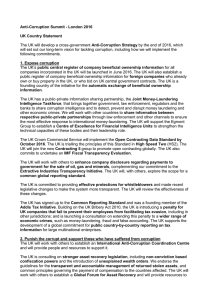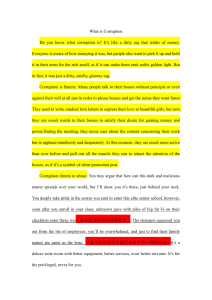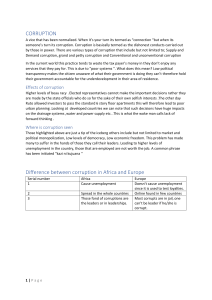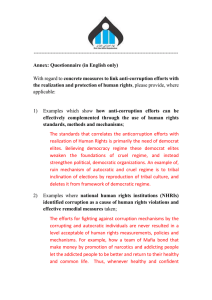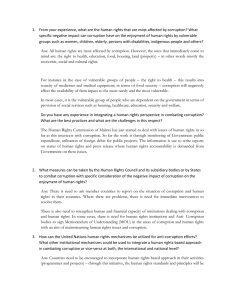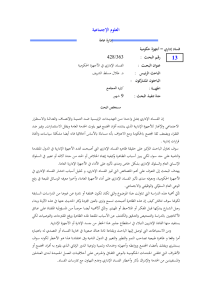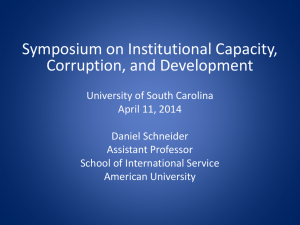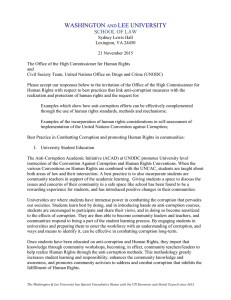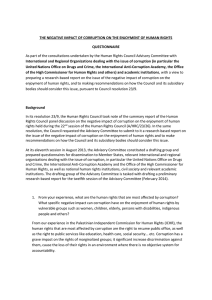DEPARTMENT OF THE TREASURY OFFICE OF PUBLIC AFFAIRS
advertisement
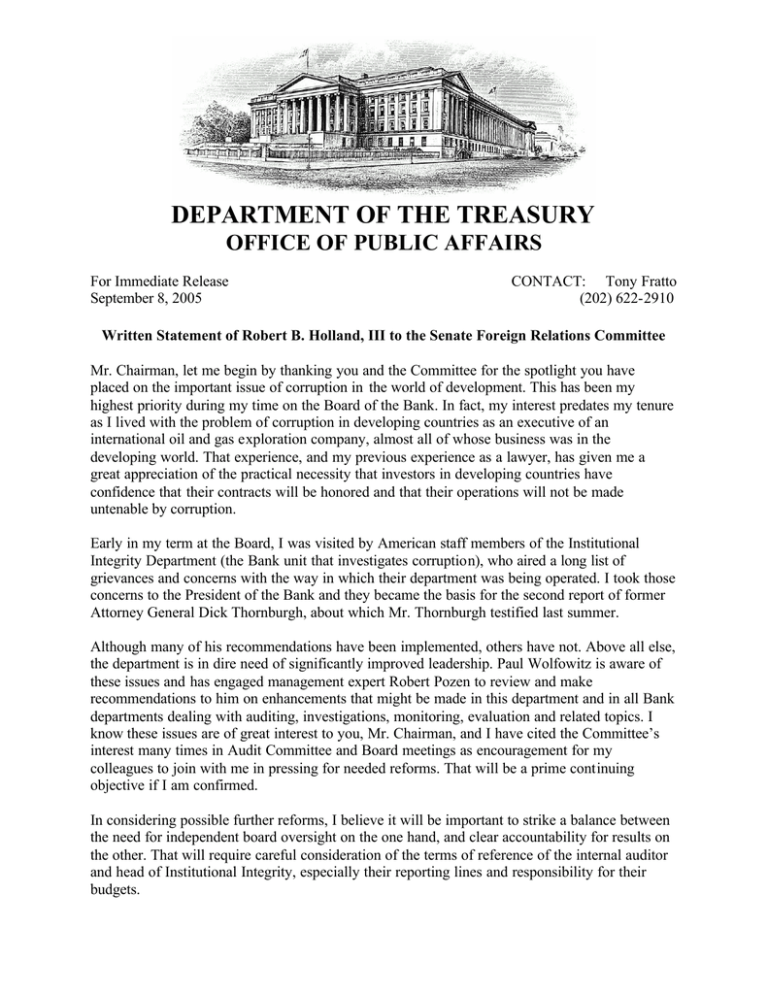
DEPARTMENT OF THE TREASURY OFFICE OF PUBLIC AFFAIRS For Immediate Release September 8, 2005 CONTACT: Tony Fratto (202) 622-2910 Written Statement of Robert B. Holland, III to the Senate Foreign Relations Committee Mr. Chairman, let me begin by thanking you and the Committee for the spotlight you have placed on the important issue of corruption in the world of development. This has been my highest priority during my time on the Board of the Bank. In fact, my interest predates my tenure as I lived with the problem of corruption in developing countries as an executive of an international oil and gas exploration company, almost all of whose business was in the developing world. That experience, and my previous experience as a lawyer, has given me a great appreciation of the practical necessity that investors in developing countries have confidence that their contracts will be honored and that their operations will not be made untenable by corruption. Early in my term at the Board, I was visited by American staff members of the Institutional Integrity Department (the Bank unit that investigates corruption), who aired a long list of grievances and concerns with the way in which their department was being operated. I took those concerns to the President of the Bank and they became the basis for the second report of former Attorney General Dick Thornburgh, about which Mr. Thornburgh testified last summer. Although many of his recommendations have been implemented, others have not. Above all else, the department is in dire need of significantly improved leadership. Paul Wolfowitz is aware of these issues and has engaged management expert Robert Pozen to review and make recommendations to him on enhancements that might be made in this department and in all Bank departments dealing with auditing, investigations, monitoring, evaluation and related topics. I know these issues are of great interest to you, Mr. Chairman, and I have cited the Committee’s interest many times in Audit Committee and Board meetings as encouragement for my colleagues to join with me in pressing for needed reforms. That will be a prime continuing objective if I am confirmed. In considering possible further reforms, I believe it will be important to strike a balance between the need for independent board oversight on the one hand, and clear accountability for results on the other. That will require careful consideration of the terms of reference of the internal auditor and head of Institutional Integrity, especially their reporting lines and responsibility for their budgets. Also, there is an important review of the Bank's whistleblower policies and practices currently underway, a review our office has encouraged. At the same time, I am concerned that the Bank has imposed on itself a system of employer-employee relations that is widely perceived as making it virtually impossible to terminate employees. Both issues, and their relationship with each other, need to be considered carefully. Among the many anti-corruption priorities should be formal adoption of a voluntary disclosure program that would encourage participants in corruption to come forward voluntarily to provide information. An important pilot project in this regard is well advanced and will illustrate the significant potential of this important tool. It should be noted in this regard that the Bank does not have subpoena power to use in its investigations. As important as the issue of corruption is, there are, of course, other important development issues. The IDA-14 agreement reflects past, and points to future, progress in areas important to the Treasury Department, including perfo rmance based allocations of IDA resources, results measurement, grants and assessments of internal controls. Like the IDA-14 agreement, the G8 debt relief proposal is an important framework for a better approach to development. Much important work remains to be done in its implementation, as in other priority areas such as Bank governance and transparency. Development being a somewhat open ended topic, there is no end to plausible areas of Bank activity. The Bank will need to discipline itself to focus on the key topic of private sector led growth. Without dealing with the issue of corruption in its own house and in its borrowing and developed country constituencies, there is little hope that the Bank will be successful in promoting sustainable poverty alleviation. The Bank’s Annual Meeting in 2006 will be in Singapore. Given Singapore’s development success, this presents an excellent opportunity to emphasize the importance of instilling respect for the rule of law and a rigorous anti-corruption regime as keys to development success. I look forward to working with you and the Committee to promote further reforms and initiatives at the Bank to further our common objectives, and to answering your questions today and whenever you wish to ask them in the futur e. -30-

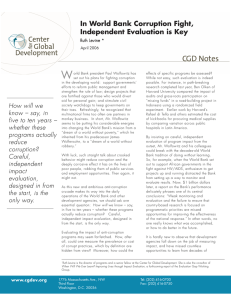

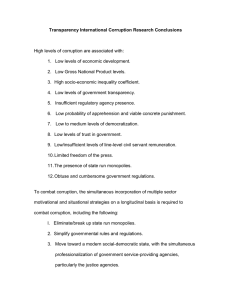


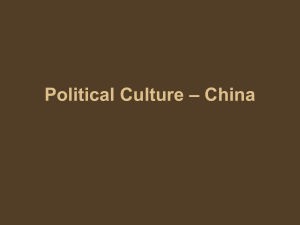
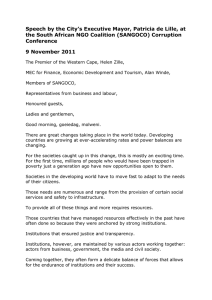

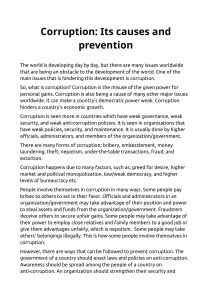
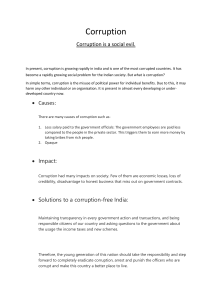
![Jon Benton, SCSC Conference, 9 Sept 14 [PPT 784.00KB]](http://s2.studylib.net/store/data/014996354_1-4ebfe463a2218427046b56da15d0c678-300x300.png)
